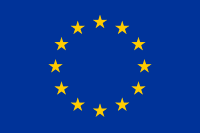Campaign for a citizens-friendly European Citizens' Initiative
 |

|
| Name: | Campaign for a citizens-friendly European Citizens' Initiative |
| International Organization: | European Union |
| Active: | Yes |
| From: To: | 2005 |
| Promoters: | Democracy International and IRI Europe |
| Supporters: | Ngo and foundations |
| Aim: | |
| Official web site: | http://www.citizens-initiative.eu/ |
| Focus: | The Initiative For Europe Handbook 2008 - The guide to transnational democracy in Europe edited by Carsten Berg, Paul Carline, Bruno Kaufmann, Jo Leinen and Diana Wallis with a preface by Margot Wallstrom |
The European Citizens' Initiative
The European Citizens’ Initiative is one of the major innovations of the Treaty of Lisbon aiming to increase participatory democracy in the European Union (EU). The initiative enables one million EU citizens, to call directly on the European Commission to bring forward an initiative of interest to them in an area of EU competence.
The subject of the citizens’ initiative must function within the boundaries of the existing European treaties and the powers of the European Commission.
The legal basis of the citizens’ initiative is set out in Article 11, Paragraph 4 of the Treaty on European Union (TEU) and Article 24, paragraph 1 of the Treaty on the Functioning of the European Union (TFEU). Both were last amended as the Treaty of Lisbon.
The practical arrangements, conditions and procedure of the citizens’ initiative will be determined in a new EU regulation. The European Commission adopted a draft regulation on the citizens’ initiative March 31st 2010, which is now negotiated with Council and the European Parliament until the second half of 2010.
Aim
Citizens’ initiative rights to be workable need to be designed in a citizens-friendly and useable way. This is what this campaign is all about.
In order to ensure that the ECI can fulfil its potential to engage citizens in EU issues, the promoters of the campaign suggest the following modifications to the ECI regulation, which was proposed by the EU-Commission on March 31st 2010:
1. Clarify the European Commission’s follow-up to successful ECIs
The draft ECI regulation is silent on the most important phase of the ECI: the Commission’s response to a successful ECI. This needs to be clearly detailed in the regulation. Each successful ECI should result in a public deliberative hearing where the Commission explains its response to the ECI in a transparent way. As is the case for a legislative initiative from the European Parliament, the Commission should also be given a time limit in which to issue a legislative proposal.
2. Simplify the signature form and eliminate ID number requirements
In the draft regulation, each person supporting an ECI would be required to give not only his or her name, address and signature but also date and place of birth and personal identification card number (ID card, passport, social security card). The ID number requirement could effectively render the ECI unusable by raising public fears of violation of privacy and identity theft. Such intrusive personal data requirements clearly deter supporters and thus significantly raise costs for signature collection. The requirement of providing a personal identity card number should therefore be removed.
3. Lower the signature threshold to trigger an ECI admissibility check to 5,000 -10.000
The Commission’s early stage check of the admissibility of an ECI is a wise step. It balances the desire for open debates on diverse topics with the need for ECIs to impact policy. However, the requirement of first obtaining the large number of 300,000 signatures is excessively costly for organisers of ECIs which will later be deemed inadmissible. 5,000 signatures would be a sufficient number for this purpose.
4. Provide practical support to ECI organiser
Given the huge practical challenges inherent in collecting one million signatures at transnational level, ECIs should have the right to formal support. Support prior to signature collection should include comprehensive information on how to conduct an ECI and legal advice. Once the ECI has been declared admissible, official translation of the text into all 21 EU official languages should be provided. To promote transnational citizen involvement, travel vouchers and free meetingspace for citizens from different countries to meet to discuss the ECI topic could also be provided.
5. Reduce the minimum number of Member States to five
The proposed requirement of a minimum number of signatures from nine Members States (1/3) is far too high. A European Party only needs members from seven Members States. Given that this is simply an agenda-setting initiative that will later follow standard EU legislative procedures, signatures from at least five member states would be sufficient.
6. Narrow definition of admissible topics would ignore important citizen interests
Since the ECI will be restricted to policy proposals necessary to implement existing treaties, many issues important to citizens, such as a single seat for the European Parliament, could not be discussed. Given that the Commission may propose treaty amendments, it should be possible to launch ECIs requiring treaty amendments to implement.
7. Insufficient time for EU-wide campaigns
The ECI Campaign welcomes the fact that signatures can be collected in paper form or electronically. However, the maximum time period of 12 months to collect one million signatures from nine countries is insufficient. Often 24 months will be needed, especially for ECIs coordinated by smaller organisations or for issues that are not yet well known or understood by the general public.
Who supports the campaign
Background
Citizens from civil society organisations like Democracy International and IRI Europe played an important role in the inclusion of the European Citizens’ Initiative in the Constitutional Treaty and then Lisbon Treaty. Carsten Berg, Coordinator of the ECI-campaign, was among the people who collected signatures for the ECI within the Convention on the Future of Europe. Thanks to the excellent cooperation with Convention members like Professor Jürgen Meyer, Sylvia-Yvonne Kaufmann, Alain Lamassoure and Guilano Amato ECI has found its place in the EU-Treaty.
After the EU Constitutional Treaty was rejected by the French and Dutch citizens in 2005, Anna Zuber from the European Students’ Forum (AEGEE) had the idea to start the initiative for the European Citizens’ Initiative, by collecting signatures across Europe for the immediate introduction of the ECI with user-friendly implementation rules. More than 120 NGOs and foundations have contributed to this project so far.
In 2008 we submitted several thousand signatures to the European Parliament, read here. As a concrete result the European Parliament issued a resolution in May 2009, which was based on a proposal by the ECI-Campaign.
Since 2009, the ECI-Campaign has closely followed the development of the ECI implementing rules and is in regular contact with decision makers within the European Parliament, Council and European Commission. We organize events on the ECI, participate in hearings on the ECI and encourage every citizen to get involved in advocating for citizens-friendly implementing regulations for the ECI.
